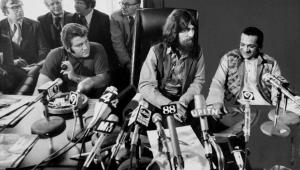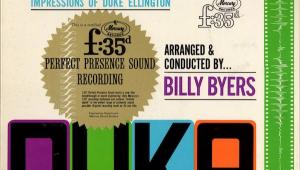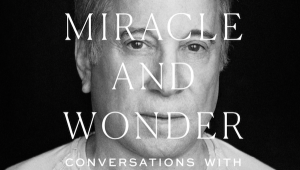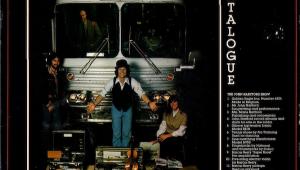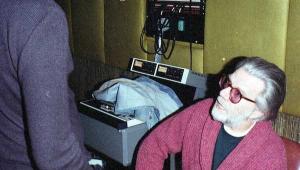and I enjoy learning that a fellow lawyer is also a fellow music lover and gearhead. Good writing takes a complicated concept and makes it simple - nicely done describing fiduciary relationships and in explaining how under-handed Klein's conduct was here! Mike, I like how the content you post on your pages here is something for everyone and welcomes all record lovers, including Kanye-loving teenagers to beatles-era JDs.
A Lawyerly Look at The Beatles Break Up... And More Part 2
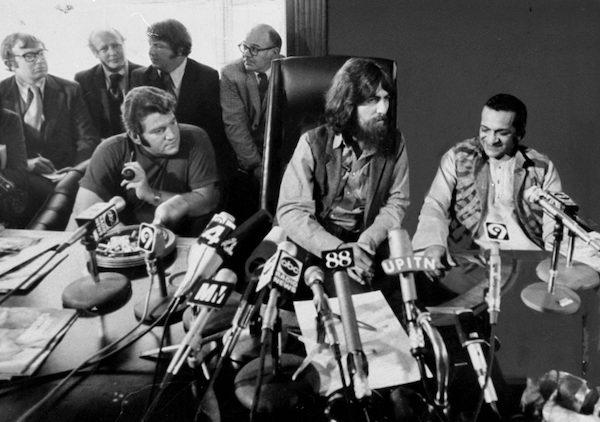
“I conclude that the composer, in seeking musical materials to clothe his thoughts, was working with various possibilities. As he tried this possibility and that, there came to the surface of his mind a particular combination that pleased him as being one he felt would be appealing to a prospective listener; in other words, that this combination would work. Why? Because his subconscious knew it had worked in a song his conscious mind did not remember”—Judge Richard Owen, Bright Tunes Music Corp. v. Harrisongs Music, Ltd., 420 F. Supp. 177 (S.D.N.Y., 1976).
Judge Owen concluded his ruling with a statement that amounted to a moral victory for Harrison: “Did Harrison deliberately use the music of He’s So Fine? I do not believe he did so deliberately.” This determination greatly affected the outcome of the case—if the district court had found that Harrison had deliberately plagiarized the earlier song, the court would have awarded the entire earnings of “My Sweet Lord” to the owner of “He’s So Fine.” In finding that Harrison had “unconsciously” appropriated this intellectual property, the district court permitted such factors as Harrison’s popularity and stature as an artist, along with the value of the new words he provided to “the borrowed tune,” as Neil Young might have put it, to be considered in the subsequent trial in which the damages would be determined. Ultimately, the Southern District of New York found that 25% of the value of “My Sweet Lord” could be attributed to Harrison’s words and pop-cultural significance, while most of its value was due to the music: Judge Owen wrote in his opinion that “I weigh the music heavily in this case because the music has already demonstrated its outstanding ‘catchiness’ in 1963 when it carried the rather unexceptional, romantic text of ‘He’s So Fine’ to first place on the Billboard charts in the United States for five weeks.”
Interestingly, in one footnote, Judge Owen downplayed the value of the signature George Harrison squeegee guitar which opens “My Sweet Lord”: “In this case I conclude that the much-touted "hook," an introductory musical motive used by Harrison was a minimal factor.”
George was particularly frustrated that Klein, an accountant and self-proclaimed expert on taxation, had failed to insist that George designate an official charity prior to the Concert for Bangladesh, an oversight which caused Inland Revenue to treat income from the accompanying album and film as George’s personal income, despite the fact that he had donated this income to charity after the fact. Although it is speculative whether the resulting £ 1 million payment to the Department of Inland Revenue was the impetus for Harrison’s decision to fire Allen Klein, nevertheless in 1973 he asked Denis O’Brien, an American lawyer who had worked with Peter Sellers, to be his new business manager.
Klein decided to take his revenge. Using information he gained while representing Harrison in the earlier “He’s So Fine” settlement talks—in particular, the huge international sales figures of “My Sweet Lord”—Klein convinced Bright Songs not to settle with Harrison for $150,000, but instead, to sell him the copyright to “He’s So Fine” for $587,000. That’s right--figuring that the damages in a successful copyright case would amount to more than a million dollars, Klein bought “He’s So Fine” behind George Harrison’s back and inserted his company, ABKCO, into the plagiarism suit as the new plaintiff, an act Judge Owen called “a covert intrusion” into the case. Klein then offered the song to George for $700,000 in a bid to settle the case. The federal court was not amused. Judge Richard Cardamone, writing for the United States Court of Appeals for the Second Circuit, wrote that Klein’s conduct was not only unethical, but a breach of the fiduciary duty he owed to his former client, George Harrison: “We find these facts not only novel, but unique. Indeed, the purchase [of the copyright to “He’s So Fine”], which rendered Harrison and ABKCO adversaries, occurred in the context of a lawsuit in which ABKCO had been the prior protector of Harrison’s interests.”
Judge Cardomone’s ruling was not merely a devastating indictment of Klein’s business practices; in calling the case “not only novel, but unique,” Judge Cardamone was saying he had never seen something so low as a party in a lawsuit switching sides in an attempt to screw over a former client. Allen Klein, whom Keith Richards called “a lawyer manque,” had managed something all lawyers hope for but few achieve-- actually creating new precedent. Only this precedent wasn’t Brown v. Board of Education of Topeka, Kansas-- it was a new low.
Although I promised AnalogPlanet editor Michael Fremer that I would not go too far into legal minutia, a discussion of the legal concept of the fiduciary duty is necessary to understand why the federal court found Klein’s conduct to be so deplorable. The law places the relationship between a fiduciary and his or her client, a common example being the lawyer/client relationship, above any other relationship outside the family or marital setting—to be a fiduciary is to accept a position of trust and confidence in which the fiduciary must place his or her client’s interests ahead of one’s own. When the Second Circuit ruled that Allen Klein, as George Harrison’s manager, had a fiduciary duty to the former Beatle, a duty he owed even after Harrison had become a former client, the court in precedent-setting fashion changed the music industry by holding managers to the same ethical standard as other fiduciaries, such as lawyers or corporate officers.
The string of decisions, first from the Southern District of New York, and then from the U.S. Court of Appeals for the Second Circuit, completely foiled Klein’s attempt to either profit from the “He’s So Fine”/ “My Sweet Lord” plagiarism suit or embarrass Harrison with the black mark of plagiarism. Although the prior owner of “He’s So Fine” would have been entitled to receive damages from Harrison in the amount of $ 1.6 million, the Second Circuit held that it would be patently unfair for Klein, the new owner of “He’s So Fine,” to profit from a breach of his fiduciary duty to Harrison. Over Klein’s objections, the federal court ordered that ABKCO sell Harrison the copyright to “He’s So Fine” for $587,000, minus the substantial sum Harrison had already paid to individuals who owned the foreign rights to the song. (The district court mentioned that they had considered ordering Klein to sell the song to Harrison for $150,000, the amount Bright Songs was willing to accept as a settlement, but there was no evidence that Harrison had agreed to that settlement offer).
Although George lost the plagiarism suit, the case was sort of a victory for him— he didn’t have to pay $1.6 million to Allen Klein, and he wasn’t found to have deliberately plagiarized another artist’s work. Recalling his relationship with Klein, George remarked, “The thing that really disappoints me is when you have a relationship with one person and they turn out to betray you,” a hard lesson for George to learn. After eighteen years of litigation, George claimed that Klein still owed him hundreds of thousands of dollars in earnings for “He’s So Fine” and “My Sweet Lord,” concluding “It’s really a joke…. It’s a total joke.”George would continue to have bad luck with managers, suing his subsequent manager Denis O’Brien for misappropriating millions of dollars from Handmade Films, Harrison’s production company. But it was George’s litigation with Allen Klein that made legal history-- the ABKCO v. Harrisongs decisions have been cited in dozens of subsequent cases for the legal proposition that a fiduciary cannot profit from his or her breach of the sacred duties owed to a client.
Although many of his clients found fault with his business dealings, the records Allen Klein packaged, manufactured, and released under the auspices of ABKCO Records are some of the best-sounding, beautifully packaged, and artistically significant releases in the history of rock and roll (some here were issued by son Jody Klein who now runs ABKCO).
Here is a small selection of must-own releases from ABKCO:
1. More Hot Rocks (Big Hits & Fazed Cookies) by The Rolling Stones (1972 Sterling Sound mastered pressing). Mastered by Lee Hulko at Sterling Sound, this is not only one of the best-sounding non-Decca Stones records, but also the compilation which separates the truly committed Stones fans from the more casual ones, who prefer its companion release, Hot Rocks 1964-1971.
2. Hey Jude (1970 compilation), by the Beatles. Although an Apple Records not ABKCO release, Allen Klein put together this compilation to take advantage of the increased royalty rates he secured for the band. Mastered at Bell Sound by Sam Feldman, the American version of this album is one of the rare good-sounding American pressings of the band, though the German pressing with A3/B3 matrices is also excellent. Early pressings have the title “The Beatles Again” on the label—Klein changed the name of the compilation to Hey Jude to take advantage of the popularity of the song. Although the version with “The Beatles Again” on the label is fairly common, copies with this title on the sleeve is one of the rarest Beatles records (my favorite pressing is the Japanese Apple AP-8940. Avoid the Japanese EAS 8570, which is excruciatingly bright-Ed).
2. Phil Spector- Back to Mono (1958-1969) (issued 1991 vinyl box/CD under Jody Klein’s supervision). Essential compilation includes unforgettable songs by the Crystals, Ronettes, and Ike & Tina Turner.
3. The Rolling Stones Rock and Roll Circus (Jody Klein). Allen Klein’s daughter Robin took six years gathering far-flung footage (some of which was found in Ian Stewart’s garage) to finally release this gift to Stones fans (also issued as a 3 LP box set).
5. Sam Cooke- Portrait of a Legend, 1951-1964, (2014 Jody Klein reissue). Cut from high-resolution files mastered by Robert Ludwig, with laquers cut by Carl Rowatti at Trutone Mastering, this is one of the best ways to hear Allen Klein’s first important client, the immortal Sam Cooke.
6. The Concert for Bangladesh. (1971) Another Apple release made possible by Allen Klein’s invaluable input, this deluxe three-record box set not only has essential performances by George Harrison, Ravi Shankar, and Leon Russell, but also devotes an entire side to that “friend of us all” Bob Dylan. If you are a fan of the style of music found in Dr. Byrds & Mr. Hyde or Dylan’s own Nashville Skyline, then this box set is essential for this performance alone (one of the producers and friend of George was my accountant—Ed).
Joshua B. Smith is the appellate attorney for the Office of the District Attorney in Augusta, Georgia, where he collects records in the town’s two world-class record stores.
All right reserved by Joshua B. Smith
Copyright 2022
- Log in or register to post comments


This was such a fun read. And the ABKCO release section is equally cool and beneficial to readers!
Kudos! More of this please...

I really appreciated how you captured the Jeckyl and Hyde aspect of Klein. His take no prisoners approach was exactly what was needed at first. Apple was a mess and the band wasn't seeing enough money for their work. Klein fixed all that. But like Patton after the war was won, those skills destroyed everything he fixed. The pure evil of trying to switch sides and scam George Harrison,establishing a case study of what client abuse looks like is hard for any normal person to understand.
Greatness, and failure. You nailed it quite well.

“…which made him look like fat Elvis in a brown business suit.” Ha!
Also, an inflation calculator tells me that $13 US in 1971 equates to nearly $85 today - no wonder I couldn’t afford one back then.

The various lawyers, of course.
How could it be otherwise?

Taking a lawyerly look at The Beatles' breakup and related legal matters is a fascinating exploration of how complex situations can arise even in the world of music. Just as Paul Mankin, an attorney skilled in handling intricate cases, helps navigate legal complexities, legal insights shed light on the intricacies of iconic band breakups and the contractual aspects that often underpin them. It underscores the importance of legal expertise in various facets of our culture, revealing the legal dimensions behind even the most celebrated musical journeys.

Enduring debt collection harassment, including incessant calls and threats. Filed complaints, sought legal guidance, and encourage others to share their experiences. Let's unite against unfair practices and advocate for consumer rights.

Developing fluency in reciting Quranic verses requires consistent practice, focusing on pronunciation, rhythm, and proper articulation. Regular recitation sessions, guided by a qualified Quran teacher, can aid in mastering Tajweed rules and improving recitation skills. Utilizing audio recordings of proficient Quran reciters can serve as a helpful tool for listening and emulation. Engaging in recitation with sincerity and devotion, along with seeking Allah's guidance, is essential for spiritual growth and fluency development & Online Quran Teacher.

I spent a long time deciding whether to try betting on sports, because it always seemed to me that it was not for beginners. But when I registered for casino neteller , I realized that it's not so scary. The platform is convenient and the registration process was simple. I made several bets on tennis, I unexpectedly won! This experience became for me an impetus for further bets. I understood that everything works honestly, now I am happy to follow the matches and bet. If you want to start, I recommend trying this site.








